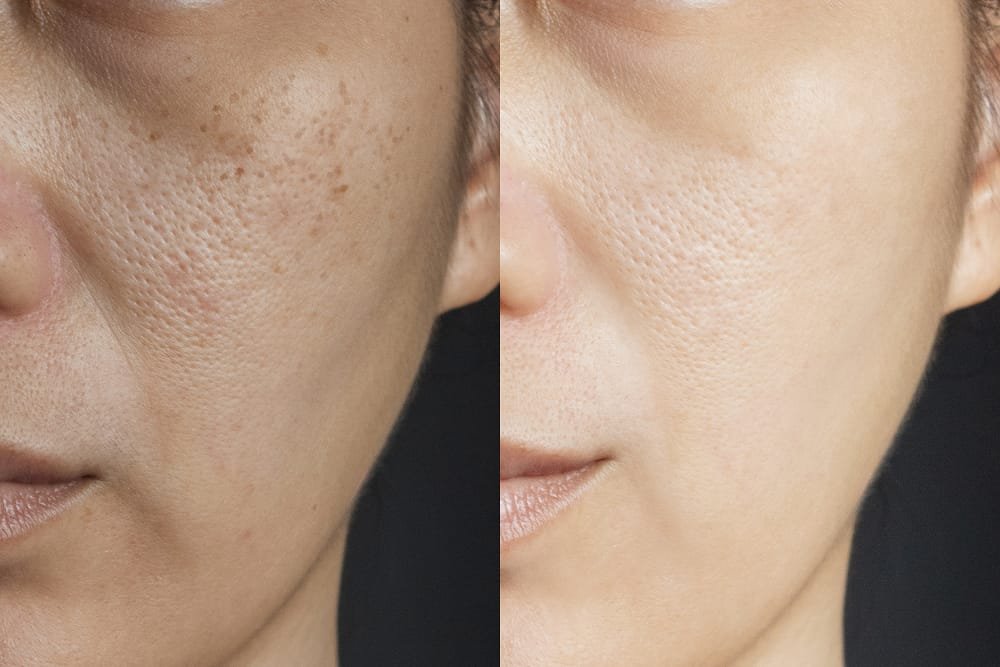If you have been struggling with acne scars, you are not alone. Acne is a common skin condition that affects millions of people worldwide, and it can leave behind unsightly scars that can be difficult to treat. Fortunately, there is a solution that can help you achieve clearer, smoother skin: chemical peels.
Chemical peels have been used for decades to treat a variety of skin concerns, including acne scars. In this article, we will explore what chemical peels are, how they work, and why they are an effective treatment for acne scars.

Contents
What are Chemical Peels?
A chemical peel is a skin-resurfacing procedure that uses a chemical solution to remove the outer layer of skin. This process stimulates the growth of new, healthy skin cells, resulting in smoother, clearer skin.
There are three main types of chemical peels: superficial, medium, and deep. Superficial peels are the mildest and only penetrate the outermost layer of skin, while deep peels penetrate the deepest layers of skin. The type of peel that is right for you will depend on the severity of your acne scars and your skin type.
How do Chemical Peels Work?
Chemical peels work by removing the damaged outer layer of skin, which stimulates the growth of new, healthy skin cells. The chemical solution used in the peel dissolves the bonds between the old skin cells, allowing them to slough off and reveal fresh, new skin underneath.
Chemical peels can also help to reduce the appearance of acne scars by stimulating collagen production. Collagen is a protein that is essential for healthy skin, and it helps to fill in acne scars and make them less noticeable.
Why are Chemical Peels Effective for Acne Scars?
Chemical peels are an effective treatment for acne scars for several reasons. First, they remove the damaged outer layer of skin, which can help to reduce the appearance of scars. Second, they stimulate collagen production, which can help to fill in acne scars and make them less noticeable. Finally, chemical peels can also help to unclog pores and reduce the occurrence of future acne breakouts.
What to Expect During a Chemical Peel
Before you undergo a chemical peel, your dermatologist will evaluate your skin to determine the best type of peel for your needs. They will also give you instructions on how to prepare for the procedure, which may include avoiding certain skincare products and medications.
During the procedure, the chemical solution will be applied to your skin using a brush or cotton pad. You may experience a tingling or burning sensation, but this should subside within a few minutes. The entire procedure typically takes less than an hour, and you can return to your normal activities immediately afterwards.
After the peel, your skin may be red and peeling for several days. It is important to avoid sun exposure and to keep your skin hydrated during this time. Your dermatologist will give you specific instructions on how to care for your skin after the peel.
Conclusion
Chemical peels are a safe and effective treatment for acne scars. They work by removing the damaged outer layer of skin, stimulating collagen production, and unclogging pores. If you are struggling with acne scars, a chemical peel may be the solution you have been looking for. Contact your dermatologist today to learn more about this treatment option.



